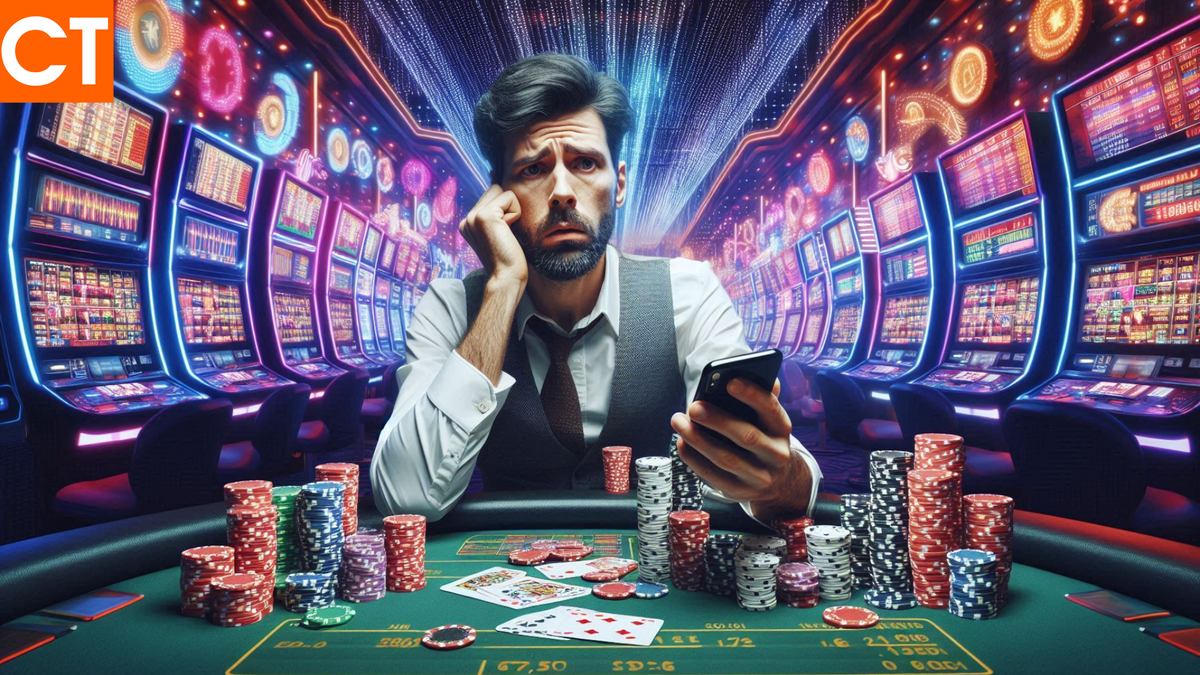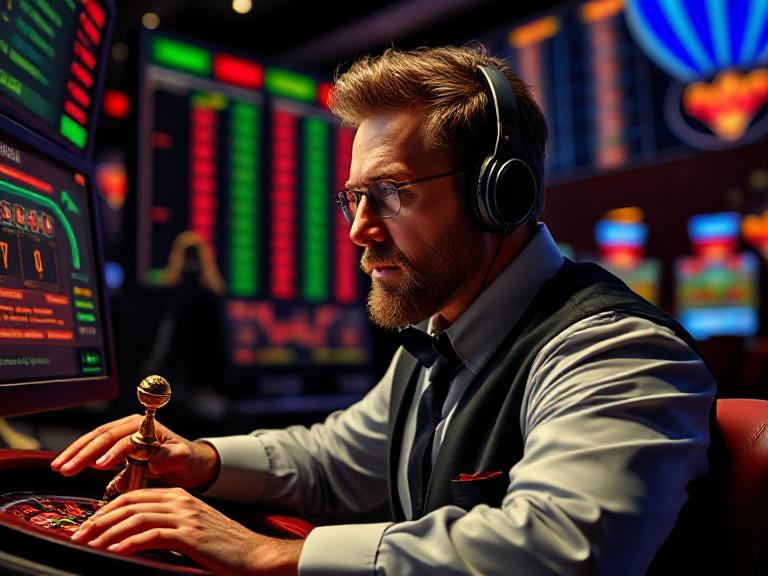The Casino Trader Syndrome – Why You’re Addicted to Bad Trades

Let me ask you a question…
Have you ever placed a trade that made no logical sense?
You knew the market was against you. You knew you were chasing. But you still clicked the “Buy” or “Long” button anyway — almost like something possessed you.
And deep down, you knew you’d lose money…
But you did it anyway.
If that’s ever happened to you — even once — then what you’re experiencing is something called The Casino Trader Syndrome.

And in this video, I’m going to break down:
- The psychology behind this dangerous habit,
- A real case study of a trader who lost millions,
- And the science-backed fix to help you break free before it’s too late.
Let’s get into it.
The Case of the Addicted Hedge Fund Trader
In 2014, a young hedge fund analyst named Mark, just 28 years old, got access to a $50 million trading portfolio.
He started strong — disciplined, risk-managed, and analytical. His job was to trade tech stocks.
But over time, something changed.
He began making wild bets on earnings reports. Started chasing losses. Ignored his stop-losses. And most dangerously — he started overtrading.
One day, his manager caught him placing over 150 trades in a single morning.
When asked what his thesis was, Mark said:
“I don’t know… it just felt like the right move.”
That’s when they realized — Mark wasn’t trading the markets anymore.
He was trading dopamine.
Just like a gambler in a casino.

The Psychology: What is Casino Trader Syndrome?
So what happened to Mark?
Turns out, this behavior is very common — and has a name: Casino Trader Syndrome.
It’s when traders start treating the markets like slot machines, not businesses.
A recent 2022 study published in Frontiers in Psychology scanned the brains of frequent retail traders — and here’s what they found:
1) Winning a trade triggered the same brain regions as gambling wins.
2) Losing a trade activated the pain-avoidance circuits, leading to impulsive revenge trades.
🔁 The cycle repeats itself, with traders becoming addicted to the thrill, not the strategy.
Why This Happens (And How It Destroys Traders)
See, every time you win a trade — even if it’s random or lucky — your brain releases a small hit of dopamine, the “feel good” chemical.
But here’s the dangerous part…
Even nearly winning gives your brain the same dopamine hit.
That’s why people stay glued to slot machines — and it’s the same reason traders keep staring at charts, refreshing their screens, and placing one more order.
It’s not about profits anymore… it’s about the high.
And just like a casino, the house (the market) always wins in the end.
Real-Life Parallel: I Saw This Happen Firsthand
Back when I ran a trading education community, I had a member — let’s call him “Dan.”
He was smart. Analytical. But emotionally unstable in the markets.
He would journal his trades for two weeks, follow risk rules, and then suddenly blow his entire monthly profit in one night.
Why?
Because he got bored.
He told me:
“I missed that rush. I missed the adrenaline. I needed to feel something.”
Dan wasn’t trading for money.
Dan was trading to escape his emotions.
And that’s exactly what Casino Trader Syndrome does. It turns smart people into emotional risk junkies.
The Solution – How to Rewire Your Trading Brain
So how do we break out of this dangerous loop?
Research shows one powerful way to regain control:
Cognitive Reframing + Behavioral Conditioning
Here’s how to apply it in your own trading routine:
Step 1: Reward the Right Behavior (Not the Outcome)
After every trade, praise yourself only if you followed your system — whether the trade was a win or a loss.
This rewires your brain to crave discipline, not dopamine. Over time, consistency becomes more satisfying than chasing wins.
Step 2: Use Friction to Break Impulse Loops
- Turn off one-click trading on your platform.
- Log every trade into a journal before executing it.
- Use a 60-second timer to pause before placing a trade.
These small delays create just enough space for your logical brain to take over and override emotional decisions.
Step 3: Build an Internal Locus of Control
Remind yourself daily:
"Every trade I place is a decision I control."
"My consistency is more important than my excitement."
This mindset shift is what separates the casino-style gambler from a professional trader.
Want to Master Emotional Trading Control?
One of the most effective resources I’ve found is a course on Skillshare called "Mindful Productivity for Traders."
It covers:
- How to manage focus and attention
- Practical stress reduction techniques
- How to rewire mental habits that lead to overtrading and impulsive decisions
If you’re serious about building a consistent, disciplined trading mindset, this course is a great place to start.
You can try it free using the link in the description below. It might just be the missing piece in your trading journey.
Final Words
The market doesn’t care about your emotions.
But if you don’t learn to manage them, they’ll manage you—and every trade you take.
Break free from Casino Trader Syndrome.
Trade with intention, not addiction.
And you’ll finally start to see the results you’ve been chasing all along.
